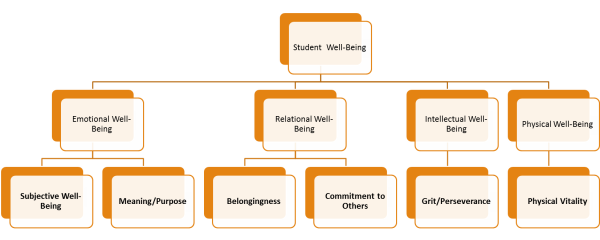Everyone is talking about wellbeing, from Gross National Happiness in Bhutan to the Gallup Student Poll.
Gallup and Purdue will reveal the results of their first study next week.
The Gallup-Purdue Index will measure the most important outcomes of higher education – great careers and lives that matter – and provide higher education leaders with productive insights for meaningful performance improvements. The initiative aims to create a national movement toward a new set of measures, created by and for higher education, and to help foster a new level of accountability for the sector.
Gallup’s spin goes beyond are you working and how much are you earning (although it includes that). Gallup wants to understand’s alumni’s engagement:
“In the last seven days, I have felt active and productive every day,” and “I like what I do each day,” and “The mission and purpose of my organization makes me feel my job is important.” Survey takers will also be asked to respond to items such as “In the last 12 months, I have received recognition for helping to improve the city or area where I live,” and “I feel proud to be a [university name] alum,” and “I would recommend [name of university] to a friend or colleague.”
I would love if this could be paired with the National Survey of Student Engagement, which would cover the student experience through college to the end and out into the world of work.
Meanwhile, Wake Forest Universit has struck out on their own to devise an isntrument to explore wellbeing:

As you can see, the items overlap with most of key aspects that positive psychologists are exploring.

 Day 2 – Finding Happiness
Day 2 – Finding Happiness What’s more, “The Science of Happiness” will offer students practical strategies for nurturing their own happiness. Research suggests that up to 40 percent of happiness depends on our habits and activities. So each week, students will learn a new research-tested practice that fosters social and emotional well-being—and the course will help them track their progress along the way.
What’s more, “The Science of Happiness” will offer students practical strategies for nurturing their own happiness. Research suggests that up to 40 percent of happiness depends on our habits and activities. So each week, students will learn a new research-tested practice that fosters social and emotional well-being—and the course will help them track their progress along the way.